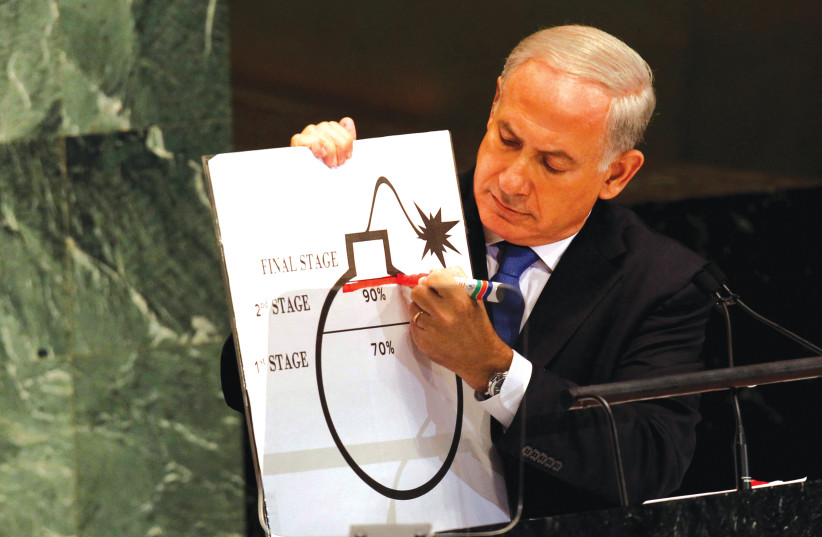Political uncertainty and talk of a new election unfolded in Israel on Wednesday, but a new round of possible political upheaval would appear to take on a different guise to those that went before, because former prime minister Benjamin Netanyahu, even in a caretaker capacity, was a known quantity to Iran, while at the moment, he has no executive powers.
Netanyahu has always been an open book in warning about the Iran threat, but he was also very cautious and sought to avoid any larger wars in the region. In 2018 for instance, he provoked a coalition crisis because he did not want to invade Gaza.
Now we are almost a year into the new government and there has not been any new conflict. However, daily clashes at Damascus Gate are the kind that can lead to broader conflict, because Iran and its proxies, such as Hamas, want to use these clashes to create a reason for conflict with Israel. Iran and its allies are not amateurs.
Hezbollah leader Hassan Nasrallah has been in charge for decades, as has the leadership of Hamas. They know Israel. They also know that a new leader, forced to prove himself, may opt for war. Ehud Olmert opted for Operation Cast Lead (the December 2008-January 2009 Gaza War) which ended without a conclusive outcome.
As my colleague Lahav Harkov pointed out in a timely analysis, the reality of the unfolding crisis could put Foreign Minister Yair Lapid in the driver’s seat temporarily. Lapid recently met with the Greek and Cyprus foreign ministers, and also hosted his counterparts from Morocco, UAE, Bahrain and Egypt at the Negev Summit. He has been a dynamic and energetic foreign minister. This is where he has made his mark.

But what would Lapid do in a crisis if Iran began to move more precision-guided munitions or dangerous weapons to Iraq, Syria and Lebanon, in a move sure to provoke Israel’s concerns. Where is the red line?
The dilemmas raised through political chaos or new elections in Israel could also relate to a potential new Iran deal. How will Israel handle pressure regarding any kind of Iran deal or Iranian nuclear enrichment provocations?
Furthermore, there are questions about relations with Russia in Syria, and how Russia is handling Syria now that it is pulling back from attacking Kyiv. While the current leadership is more critical of Moscow, Netanyahu’s allies tend to be quiet regarding the Ukraine war.
Netanyahu recently congratulated Hungarian Prime Minister Viktor Orban on his reelection. Orban is also praised by Russian President Vladimir Putin, but he has become more controversial in Europe. Bennett also recently had to postpone a trip to India because of contracting corona. Netanyahu has enjoyed close relations with India’s Narendra Modi.
All of this matters. Iran could see chaos in Israel as an opportunity to make moves in Iraq, Syria and Lebanon. It could transfer new drones to Yemen and begin more actions at sea.
Iran generally thrived as a regime when Netanyahu was in power, but not because Netanyahu was weak on Iran. It thrives also when it is put under pressure. Iran thrived under the US’s “maximum pressure” sanctions under Donald Trump as it boosted its role in Iraq and Syria. That means that even though the US and Israel have increasingly coordinated on Iran issues, and Israel has new friends in the Gulf, Iran has also grown in strength.
Iran has used missiles to strike at Erbil and has empowered the Houthis to attack the Gulf, and these moves prove the breadth and daring of Iran’s power and impunity. Russia’s war has also opened a Pandora’s box of impunity for new wars. It is possible Iran will want to test Israel during Ramadan, and now that a political crisis is afoot, Iran could see this as a green light.
